Amanda Gorman And The Rise Of The Poet Propagandist
Amanda Gorman Understands What A Poet Needs To Be In Liquid Modern America
The novelist and music critic David Keenan — well known in the music underground for both his disbanded Volcanic Tongue record label and his advocacy for the Japanese noise underground, freak folk, “hypnagogic pop,” free improv and all manner of musical styles left of center — recently appeared in a “Baker’s Dozen” article published by The Quietus in which musicians and artists select a dozen of their all time favorite albums and discuss the influence those albums have throughout their lives and on their work. In what felt like an indirect critique of the publication that was interviewing him (the same publication that fired me for my advocacy of reading literature that falls outside the left liberal paradigm), Keenan recounts his fandom of Lou Reed: “ I don't get it when rock stars talk about social issues, I liked it when rock stars behaved appallingly. I never expect anything sweet or nice, I want them to be dangerous sociopaths. Remember when being Bono was not cool? And now everyone wants to be fucking Bono!”
What Keenan laments here is the modern tendency to restrict artistic production and radical expression to one that is deemed morally pure by the existing bourgeois order. Make no mistake, the demands made by the bourgeois right of the 1990s to censor any art that negated Judeo-Christian values is of the exact same character as the bourgeois left’s contemporary demands to hold art to the new standards of “intersectionality.” All that has changed is the faction of the bourgeois that now wages more power, but the left bourgeoisie's moral standards are equally arbitrary as those made by its right counterparts were; every bit as unpopular, suffocating, and reviled. And arguably, the bourgeois moralism of the intersectional variety is even more restrictive and repressive than the Christian right’s was. Why? Because at least most artists had the good sense to reject the bourgeois right’s cultural leanings. Most artists weren’t inculcated with religious orthodoxy, but artists ARE indoctrinated with the reductive beliefs of the left bourgeoise at the elite academies that most of them attend. So with the bourgeois left writing the narrative and enforcing the rules with the values largely created in liberal arts colleges around the country by artists and “radicals” no less, everyone is confused, and even worse, everyone is afraid. Afraid of being tarnished as a racist or a reactionary. And when has discourse policing ever truly been in service of “the marginalized?” Never, in fact, it is a tool of the power structure as it exists to silence and destroy its critics and dissidents. As a result, we have the most flaccid culture in history. We have one belief system that seemingly everyone, from feminist performance artists to neoconservative CNN anchors, tacitly agrees with and accepts as the only moral truth. Where are the rules breakers? Where are the Genet’s? Where are the Acconci’s? If they’re out there at all, they’re afraid to unleash the full power of their subjectivities and creativities. They are censoring themselves, no doubt, because an impotent platform is better than no platform at all (or is it?).
I think about these trends all the time, and the only thing holding me back from self-defeating nihilism is the correspondences I have with friends and allies who share my anxieties about the state of the arts. And then, something happens that legitimizes my most paranoiac fears. Now when you think about “the poet,” do you think about someone who instantly earns global recognition at the ripe age of 22-years-old? Maybe you do, but I typically picture a shabby, booze and drug addled person toiling away in obscurity and living a life of labor, pain and suffering. I certainly don’t picture Amanda Gorman, being paid millions of dollars to sermonize her prose at the inauguration of the writer of the ‘94 crime bill and a brutal prosecutor who locked parents up for their children’s school truancy. But Gorman’s overnight success is the apotheosis of the avant-garde’s collapse as a modernist force and its liquidation into the status quo. “The best art,” or should I say, the most successful art given the state of affairs that we inhabit and the cultural beliefs that we’ve internalized, serves as nothing more than a moral laundromat for the most powerful and disciplined faction of the ruling elite.
At some point, say back in the late 1960s, the elite must have realized that it would be more effective to co-opt the language of the radicals than to keep imprisoning and/or killing them. Little by little, the radicals stopped fighting for emancipation and started propagandizing for the left side of capital and its managers in the Democratic Party. It was a mass deflation of imagination and a retreat into defeatism. That brings us to Gorman. I saw a well-known artist on Instagram, one smart enough to not appear too gleeful about the election of Biden and Harris, write: “The president of the United States can’t be radical, but the poet laureate can be and is.” Actually, no she isn’t, and no she can’t be. Because the poet laureate eats from the same trash can of ideology as the politicians that she’s doing the bidding of, and she’s fueled by that same machinery’s oil. She’s just serving a different function, and in liquid modernity, that function IS the artist’s function. The artist’s function is propaganda.
Gorman is demonstrable proof that any artist can be afforded fame and riches if they understand this role. Her prose is anything if revolutionary, and doesn’t even qualify as vaguely interesting. It’s certainly not sublime, or even beautiful. Writing for Caesura, Emily Post-Avant writes that it might be cruel to make fun of Gorman, given her age and her generational limitations: “She is clearly, and like so many Gen Z poets today — Slam, MFA, POC, White, Queer, Straight, Mainline, or Avant — more understandably tuned into prospects on the media/online red carpet than into slow-motion self-immolation through poetry.” But sorry, Gorman is now the most famous contemporary poet in the world, and with that we must criticize her work as a serious expression. But a serious expression of what? She certainly isn’t materializing the “violent contradictions” that Deleuze found so thrilling in the work of Artaud. Nor does she seem to “desire the impossible” in the way that Bataille noted that Baudelaire did. And while Richard Wright’s poetry was a vicious lyrical assault on the ideology that legitimized inequality and is credited with improving race relations leading up to the civil rights movement, Gorman’s work harbors the illusion that electing agents of the carceral state to the highest office in the land should be accepted as proof of material progress for the many (deeply vulgar and grotesque). Normally it would be in this section of the essay that I quote text from a Gorman poem, but I don’t even have the resolve right now to go back and read it. So head to her website if you don’t want to take my word for it. This is the poetry of liberal reformism, of bourgeois mystification, of a reductive and poor understanding of the world we live in. This is poetry of abject conformism and the poetry of hollow moralism. This is the best contemporary poet we have (from the perspective of the people who get to make these determinations and the standards they set).
What the poet Gorman has a talent for is aggregating the banal moral pieties of the left bourgeoise and distilling them into a performative rhetorical style that projects the image of a kind of pseudo-emancipatory figure. A kind of Beyoncéfied justice icon (which is, tragically, the same image projected by a great many of Black Lives Matter’s figureheads). Post-Avant described her text well as, “Op-ed-style clichés, mostly, with some third-tier sonic correspondences laced together here and there, likely with help from RhymeZone.com. (Did she really end the poem in front of untold millions by pairing “see it,” with “be it”? Half the third graders in Kenneth Koch’s Rose, Where Did You Get That Red? could have beaten that one.)”
I’m sure there are ethical poets and literary critics who wouldn’t read too much into the cultural rise of Gorman. Surely, she’s not the first generational mediocrity to become the most famous poet of her time. But she, unfortunately, is the symbol of the left bourgeoisie's theft of radicalism. She is an embodiment of the fluidity that has developed between the ruling elite and the art that has historically functioned as dissidence to its power. In Gorman’s success, the left bourgeoise says to us (the divergents, the artists, the weirdos): “We will pervert everything you love, steal it, and turn it into something unrecognizable that is beneficial to us, and detrimental to you. Everything that makes your life worth living will be employed as a weapon that protects our dominion over you.” Gorman’s work and her success are, from my perspective, repugnant. A testament to how far we’ve fallen. A pillar to our acquiescence to the mystified power of the owners above us. In Bataille’s Literature and Evil, the philosopher wrote, “Though poetry may trample verbally on the established order, it is no substitute for it.” What Bataille suggests here is that while poetry can’t function as a political action, it can be a disruption of the natural order of things. But Gorman’s success is a repudiation of Bataille’s theory, if not actually a flippant inverse of it. Gorman’s poetry IS a political action, and in opposition to a “disruption of the natural order,” it represents a coalescing and reification of the natural order of things. That is, the natural order of bourgeois democracy in late capitalism in an empire on the decline.
How many of the soft left liberal functionaries of the art and publishing worlds that, even though they weren’t exactly excited about a Biden presidency, justified their votes for a return to the status quo with copes about how the removal of Trump would initiate a ceasefire in the emotional warfare that calls itself “woke culture.” What these people misunderstand is that wokeness isn’t an authentic mode of belief, it simply represents a leftist cultural disposition that the bourgeoisie has discovered to be flattering to its political interests and as a result has absorbed it and turned it into a control mechanism to manage the rage of the people. Gorman’s rise is proof that wokeness, as long as it’s useful to hegemonic power, isn’t going anywhere. Artists can be awarded modeling contracts, Super Bowl appearances, and global fame so long as they understand what the role of the artist has been reduced to: a filthy propagandist for a political system in crisis. If artists can perform this role well, the sky is the limit (even poets can get rich now if they do what’s expected of them). The only way we can keep producing art that matters is to build channels outside this paradigm. We can’t be afraid of cancellation, we must embrace it. Subservience will be the death of beauty, and may we live in shame and fear if we do not oppose it while we still have the chance. We often forget that freedom, and guaranteeing more freedom to the people whose freedom is still compromised, is the ultimate goal of an emancipatory political project. Does the culture that has made Gorman a star feel like one that prioritizes freedom? Leave your fear behind, cross over to the other side, and reclaim the freedom that they try to strip you of every day of your lives. Let’s turn to the words of the real radical and freedom fighter Fred Hampton: “If you dare not struggle then damn it, you don’t deserve to win.”

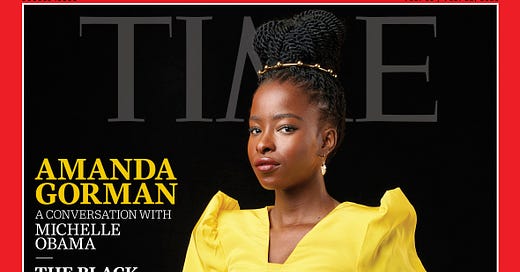



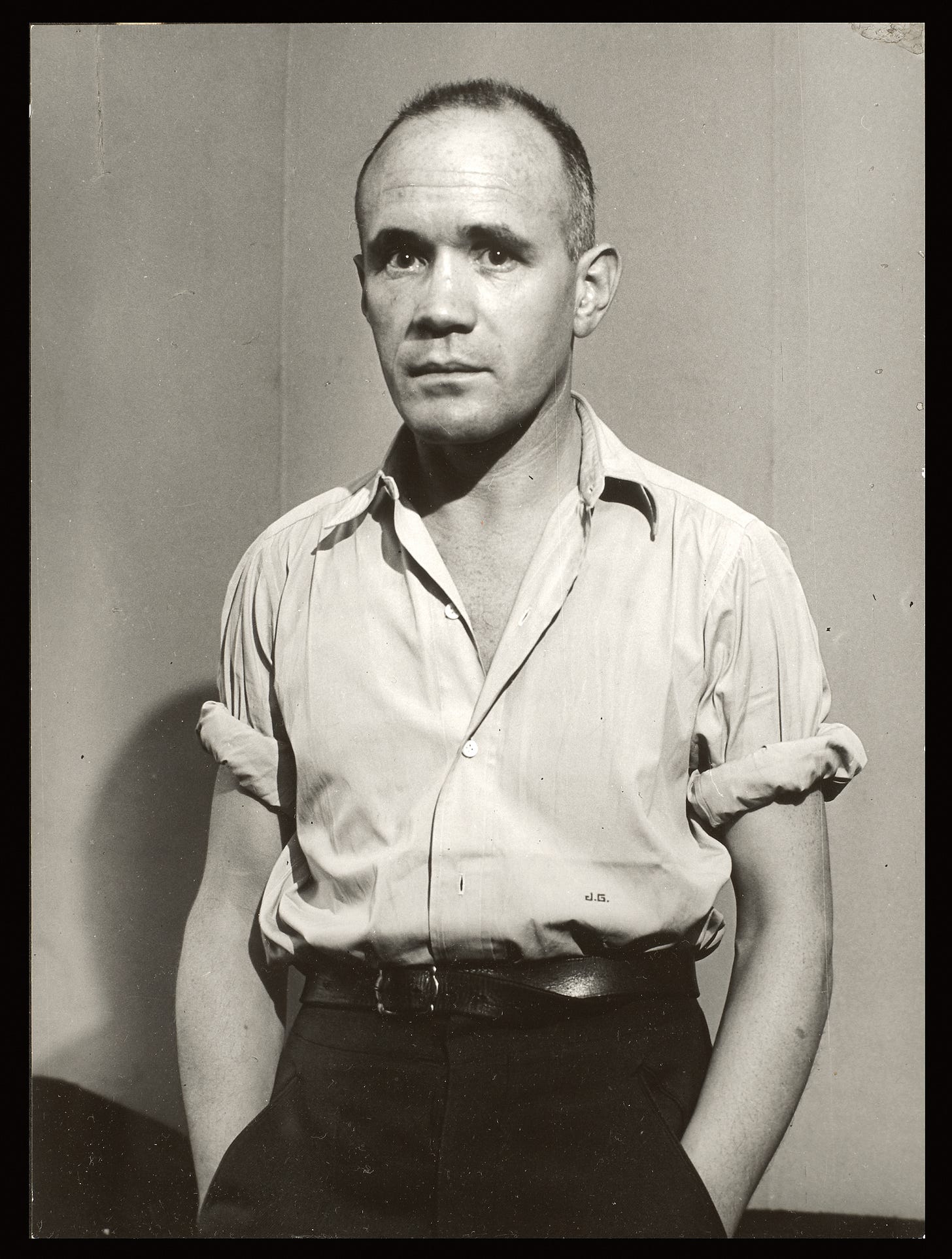
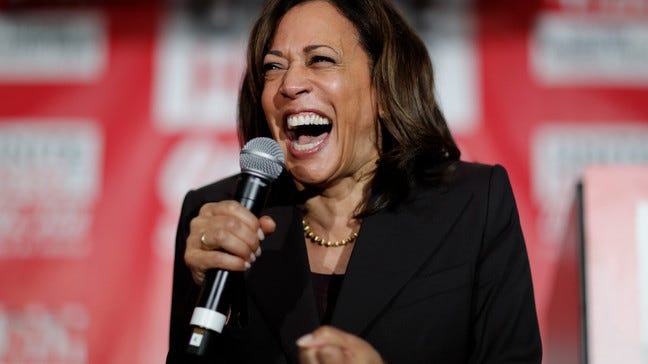
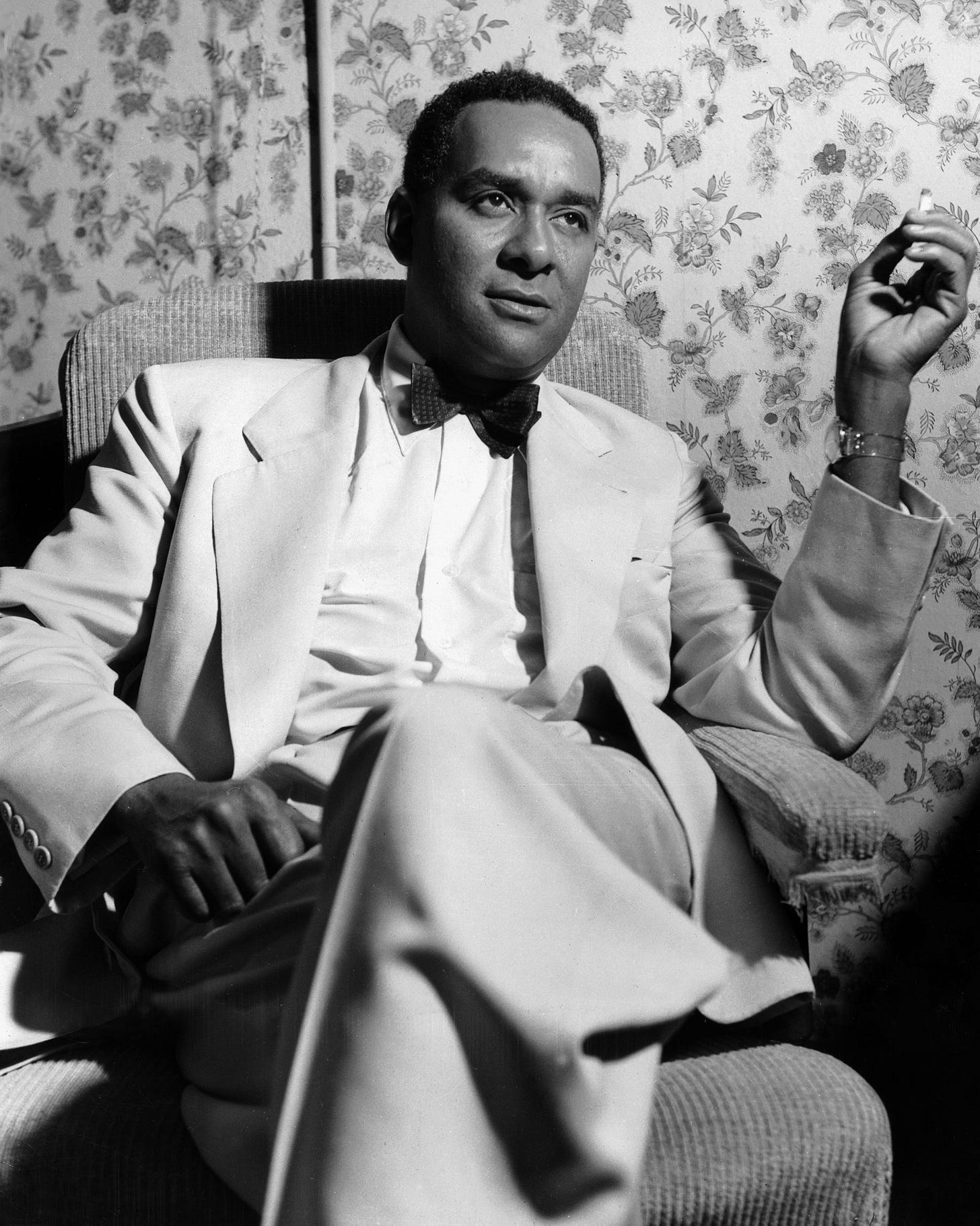
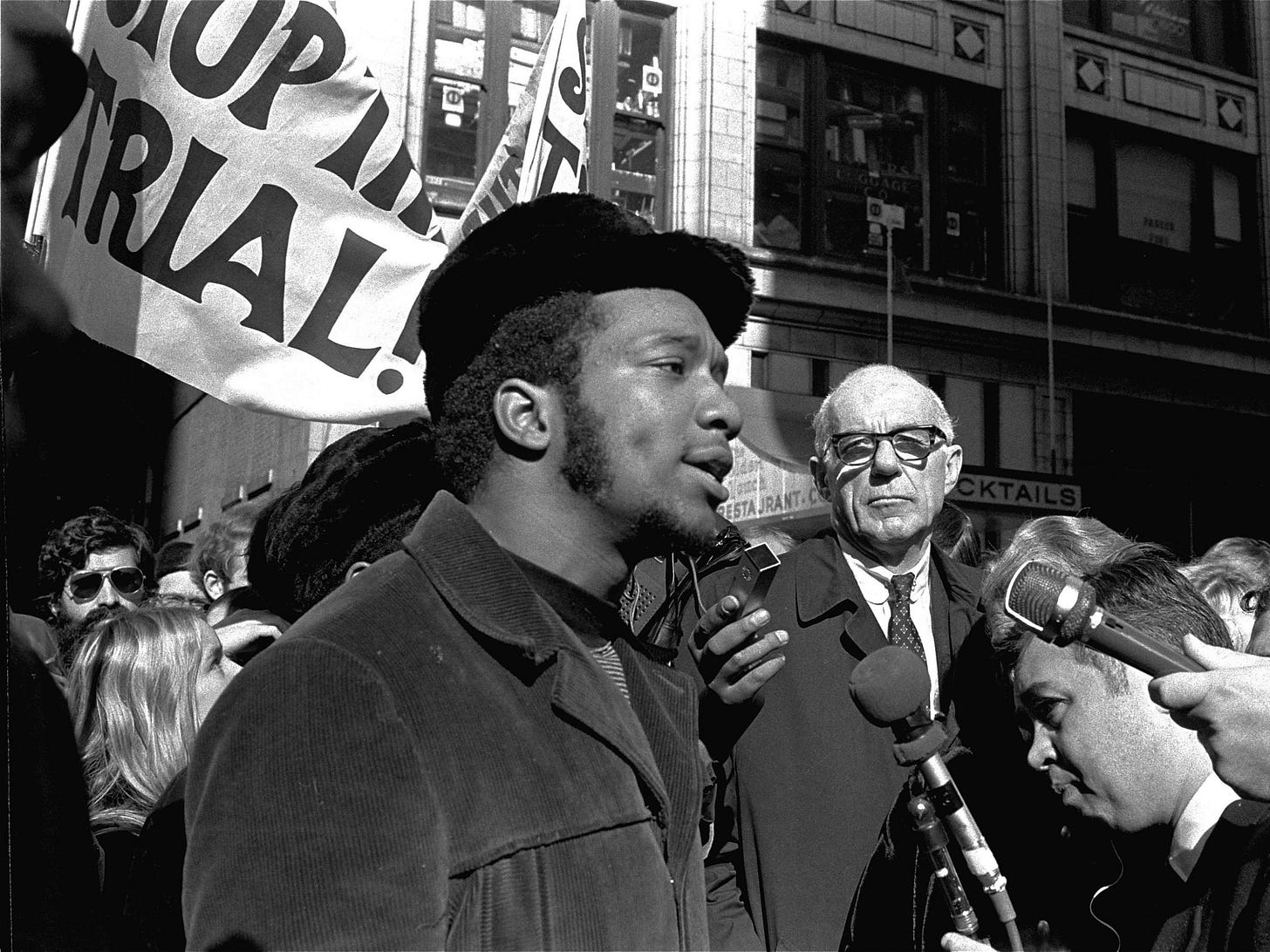
Excellent essay, really well written. All my support!
Thanks for saying all this so well. Here's an observation. Not a criticism. A call for action, I think. This material from your closing, "Subservience will be the death of beauty, and may we live in shame and fear if we do not oppose it while we still have the chance. We often forget that freedom, and guaranteeing more freedom to the masses, is the ultimate goal of an emancipatory political project. Does the culture that has made Gorman a star feel like one that prioritizes freedom? Leave your fear behind, cross over to the other side, and reclaim the freedom that they try to strip you of every day of your lives." is not particularly precise. Your final sentence fits onto "we must embrace it." Powerful. This little passage I've pulled out is full of undefined terms, such as "the death of beauty" (I remember it being declared dead back in the 80s at least), "shame and fear" (surely, something precise is meant?), "still have the chance" (sure, we can guess, but it would be better to spell it out), "masses" (a term worth up-dating), "emancipatory political project" (a wide-open descriptor), "freedom" (always a head-scratcher), "other side" (troublingly vague), and "they" (wouldn't naming this vague 'they' be useful? wouldn't it open doors?). These are all terms outside the boundaries of your article, which is brilliant, and you are right to give them such short space here. However, they make a knot that suggests a second article, one that links them together and relates them to an ongoing story. VP Harris on the cover of Vogue, plus the body language between her and Michelle Obama at the inauguration, et-cet-er-a, linked to the symbol of Lady Gaga's costume while she sang (another poem in those lyrics), all as part of a massive propaganda event. That suggests itself as just one of many starting points. I tell ya, I'd sure love to see you expand this paragraph using the tools you've already proven you have mastered, set into relief against revolutionary art from other cultural times or locales, as you have done so admirably here. Of course, maybe it is all about the colour of dresses and words don't matter in this culture anymore, that one speaks in other ways. If that's so, the progression of the collapse of Empire should be predictable and its replacement with aristocratic imagery and courtly behaviour, both in American and Global terms, should be pretty clear, and very troubling. I see all that in that scrunched paragraph. I'm writing to urge you to pry the thing open and let whatever story you have in there speak. I sure want to read it.